
 Flash News
Flash News
Fire near the center for people with disabilities in Berat, suspected to be intentional
Internationally wanted for corruption, Loran Dusha extradited from Zimbabwe
Fire in Kavaja, a scrap metal collection point engulfed in flames
The appeal of the GJKKO leaves the seizure of Arben Ahmetaj's assets in force
Astrit Sinanaj is arrested in Tirana, he tried twice to kill a businessman
Greece expands maritime border to the West, DW: Albania as a solution provider
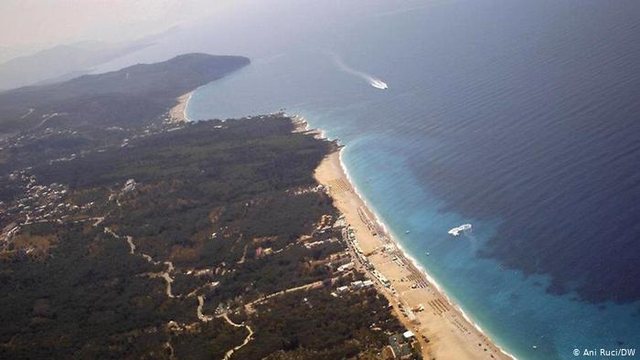
The Greek Parliament decides to expand the water territory of Greece in the Ionian Sea, from six to twelve nautical miles. This step was preceded by a preliminary agreement with Albania.
On Tuesday (January 19th), parliament in Athens decides on the twelve-mile zone in the West. It is about the sea between Greece and Italy. The approval of parliamentarians is considered secure. Foreign Minister Nikos Dendias explains that it is an inviolable sovereign right for Greece to expand its territorial waters - this does not require negotiations with other countries. Dendias would also like to declare the twelve-mile zone in the Aegean. But neighboring Turkey threatens war. Greek Interior Minister George Gerapetritis assures lawmakers that the sea border will be extended to the Aegean "when the time is right". The fact that Greece is now expanding its sovereign rights in the West, six days before resuming talks with Turkey, should be understood as a message to Ankara as well.
Under the 1982 UN Convention on the Law of the Sea, each state is essentially allowed to designate territorial waters of a maximum of 12 nautical miles. In addition, there is an Exclusive Economic Zone (EEZ) up to 200 nautical miles. Important exception: In case of disagreements or unclear demarcations, interested parties must reach a bilateral agreement. UN jurisdiction is the final instance. The principle seems clear, but its application in the Aegean is not easy. The situation becomes even more difficult due to the fact that Turkey does not recognize the UN Convention, nor does it accept the prevailing legal opinion, according to which these regulations reflect the applicable international custom and as such are mandatory even for those countries that do not have signed the agreement of 1982. The situation is complicated.
Albania as a solution provider
This step would not have been possible if Greece and Albania had not settled their differences. Although even here the situation is not entirely clear. However, after a visit to Tirana in November 2020, Foreign Minister Dendias stated for the first time that the two neighboring countries are ready for the International Court of Justice to clarify any dispute over the maritime border line. At the beginning of 2021, the Prime Minister of Albania, Edi Rama, paid a quick visit to Athens. It seems to be working. Athens and Tirana signed an agreement on the designation of their Exclusive Economic Zones (EEZ) in 2009, but this was never implemented. Why? "The Greek-Albanian agreement was based on the UN Convention on the Law of the Sea and was exemplary from the perspective of international law." says for DW Aristotelis Tziampiris, professor of international relations at the University of Piraeus. But the compromise with Athens met at that time with great political resistance in Tirana, he adds. It was Edi Rama who severely criticized the opposition leaders in Tirana for these attitudes. Shortly afterwards, the Supreme Court of Albania suspended the agreement.
Tani duhet të shikojmë drejt të ardhmes. Sipas njoftimeve të medias, diplomacia e Greqisë po përpiqet të krijojë një raport më të ngushtë me presidentin shqiptar Ilir Meta, i cili është tepër skeptik për afrimin e mundshëm. Koha po kalon, beson Angelos Syrigos, profesor i shkencave politike dhe deputet i partisë konservatore në pushtet ND në Athinë. "Zgjedhjet parlamentare do të zhvillohen në Shqipëri në prill, e deri atëherë duhet të bëhet kërkesa jonë e përbashkët për të shkuar në Gjykatën Ndërkombëtare të Drejtësisë", paralajmëron Syrigos në një shkrim të tij për gazetën Kathimerini. Eksperti politik Tziampiris e sheh këtë si një çështje jo tepër të rëndë. Ai nuk dëshiron të ndërhyjë në politikën e brendshme shqiptare. E të shkosh në GJND është një çështje që kërkon kohë. "Është e vështirë të thuash nëse do të kemi qartësi deri nga zgjedhjet parlamentare në Shqipëri. Por unë nuk mendoj se çështjet e tilla do të vendosin zgjedhjet", beson shkencëtari politik.
Prova gjenerale për një kompromis me Turqinë
Në parim ka pak pika grindjeje midis Greqisë dhe Shqipërisë në këtë fushë. Më së shumti arkipelagu i vogël përreth grupit të ishujve të vogël Erikousses, në veri të Korfuzit, mund të shkaktojnë kokëçarje. Bëhet fjalë për një total prej njëmbëdhjetë ishujsh dhe zona të vogla në Detin Jon. Në verën e vitit 2015, kryeministri i atëhershëm Alexis Tsipras kaloi madje edhe pushimet atje. Sipas kërkimit nga e përjavshmja e Athinës Proto Thema, marrëveshja Greko-Shqiptare e vitit 2009 rregullon statusin e arkipelagut më shumë në frymën e Greqisë. Mbetet të shihet, nëse pala shqiptare do ta marrë si shkas që të kërkojë përmirësime.
In any case, it is important not to make a decision that causes controversy and for the issue to be resolved through a legally binding trial, says political scientist Tziampiris. He believes this would also facilitate a possible future compromise solution with Turkey. The Greeks hope the decision will be in their favor - both in the Ionian Sea and in the Aegean Sea. But this is not certain. As an example, he cites the recent agreement on the name dispute with Northern Macedonia./ DW
Latest news

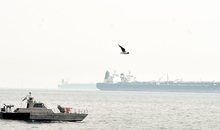
After Israeli attacks, Iran considers blocking the Strait of Hormuz
2025-06-14 17:02:28


Ja çfarë i ndodh organizmit tuaj nëse konsumoni çdo ditë limon
2025-06-14 16:16:23



Internationally wanted for corruption, Loran Dusha extradited from Zimbabwe
2025-06-14 15:30:04
VIDEO/ Dubai skyscraper engulfed in flames, 3,800 residents evacuated
2025-06-14 15:16:49
With these 5 ways, you can cope with the heat even at home
2025-06-14 15:08:46


Fire in Kavaja, a scrap metal collection point engulfed in flames
2025-06-14 14:43:40
Israel eliminates 9 scientists of the Iranian nuclear program
2025-06-14 14:33:34
The appeal of the GJKKO leaves the seizure of Arben Ahmetaj's assets in force
2025-06-14 14:17:14
Less appearance, more connection: How the way men love is changing
2025-06-14 14:16:13
Astrit Sinanaj is arrested in Tirana, he tried twice to kill a businessman
2025-06-14 14:02:59
Accident on Arbri Road, two foreign tourists end up in Trauma
2025-06-14 13:37:03


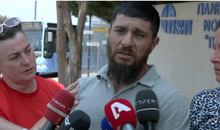

Tourist found dead inside apartment in Vlora
2025-06-14 12:46:40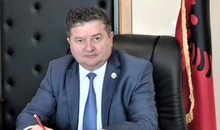

Accident in Levan, truck with kitchen utensils ends up in the canal
2025-06-14 12:12:57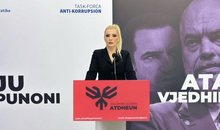

Clashes at the Order of the Psychologist, Treska declares the elections invalid
2025-06-14 11:45:55
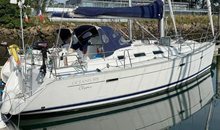




The weekend brings luck for this zodiac sign, a pleasant surprise is coming!
2025-06-14 10:34:31
Caught with firearms and drugs in the car, two people arrested at "Ali Demi"
2025-06-14 10:25:17
Analysis: Israel's attack on Iran, ignition of conflict in the Middle East?
2025-06-14 10:16:14
Gambling in a bar, the owner and the waiter are arrested in Divjaka (NAMES)
2025-06-14 10:07:27

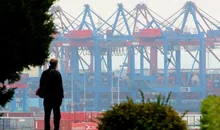


Tourist packages, how much does Albania "cost"
2025-06-14 08:58:23


From sun to clouds, what will the weather be like this Friday in Albania
2025-06-14 08:19:49
Morning mail/ With 2 lines: What mattered yesterday in Albania
2025-06-14 08:08:49
CEC decides to limit spending on local election campaign in Kosovo
2025-06-13 22:54:43
Israel confirms US support for the neutralization of missiles by Iran
2025-06-13 22:37:44

Foods you should avoid after your 40s for health
2025-06-13 22:05:07
Possessive and toxic, get to know the 3 most jealous signs of the horoscope
2025-06-13 21:51:58
Poland: A Russian plane violated our airspace!
2025-06-13 21:40:15



Tragedy in Kurbin/ Fire engulfs pig barn, 450 pigs burned alive
2025-06-13 20:40:44
Xixho: Without functional democracy, EU integration remains an illusion!
2025-06-13 20:27:45

UN: Gaza aid group has failed in its mission
2025-06-13 20:04:32

BIRN: Half of Albanians have a gross salary of less than 62 thousand lek!
2025-06-13 19:31:41
Revenge warned/ Iran raises red flag over mosque, consequence of Israeli attacks
2025-06-13 19:23:10
Albanian man killed in metro station, two Englishmen found guilty
2025-06-13 19:08:41
How recommended is a midday nap for health?
2025-06-13 19:01:58

Serious in Italy/ Albanian stabs 23-year-old in Ravenna, escapes on motorcycle
2025-06-13 18:18:57
Car catches fire in Bulqiza, driver and passengers rescued
2025-06-13 17:59:20

Attacks on Iran/ Tirana-Tel Aviv flights canceled, embassy closed
2025-06-13 17:35:45
Apple warns again: Don't sleep with your iPhone while charging!
2025-06-13 17:20:31
Albanian youth raped worker in Greece, surrenders to police (NAME)
2025-06-13 16:59:50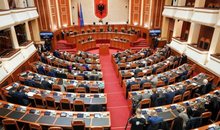
Plenary session in the Parliament on Monday, what will be discussed?
2025-06-13 16:42:10


Fire in Berat, a bushy area is engulfed in flames
2025-06-13 16:06:18



Israeli attacks, Trump calls on Iran: A deal must be made, before it's too late
2025-06-13 15:19:21

Israel's attacks on Iran raise oil prices worldwide
2025-06-13 14:56:37
The Kosovo Assembly is not constituted even in the 31st attempt
2025-06-13 14:41:24
Euro hits 'bottom', European currency drops to new historic low
2025-06-13 14:30:28
First outbreak of small cattle plague confirmed in Korça
2025-06-13 14:19:51
Kiara Tito "in mourning", experiences great pain: I will always miss your voice
2025-06-13 14:13:47


Trump warns Iran to accept nuclear deal before 'even more brutal' attacks
2025-06-13 13:55:25
Iran appoints new commanders after Israel kills military leaders
2025-06-13 13:39:28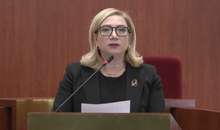



Maliq farmers protest
2025-06-13 13:03:07
KAS accepts the DP's request, decides to recount the votes in Gramsh and Peqin
2025-06-13 12:46:14



Bennett who sealed the political "deflowering" of SPAK
2025-06-13 12:21:27
Lied to FBI about Charles McGonigal's connections, Former Diplomat Pleads Guilty
2025-06-13 12:10:56
